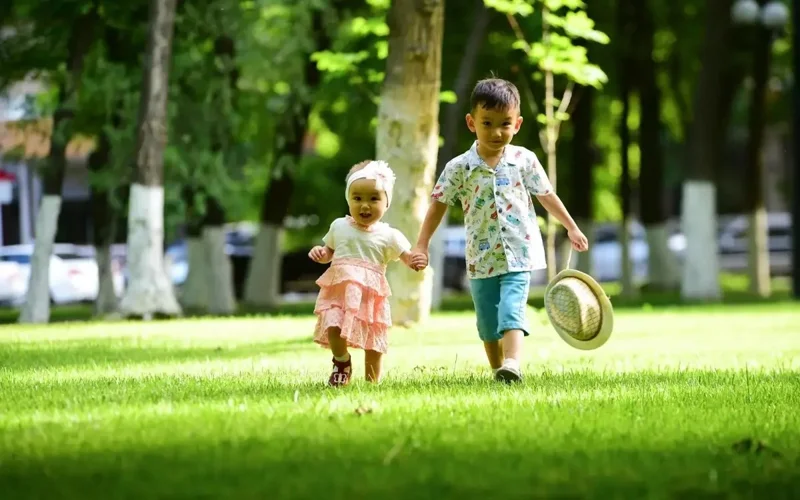Kazakhstan strengthens child safety with panic buttons and anti-bullying measures
Kazakhstan celebrates International Children's Day on June 1. A key priority of state policy is to provide equal access to quality education for the younger generation while ensuring safe and comfortable learning environments, Kazinform News Agency cites the press service of the Kazakh Government.

Following the President's instruction, the Government, through the Ministry of Education, is rolling out a comprehensive set of measures focused on supporting every child's development, safeguarding their rights, and strengthening the education system as a whole.
Today, Kazakhstan is home to 6.9 million children, including 3.9 million school students, over 1 million kindergarteners, and 556,000 college students.
In 2024, Kazakhstan passed three key laws aimed at strengthening child protection and enhancing the legal framework for children's rights. These measures introduced mentorship programs for orphans, anti-bullying initiatives, and the creation of professional foster families. As a result, 82% of orphaned children are now raised in family settings, with over 3,000 children finding new homes. Furthermore, 330 adults have become mentors, and the number of guardianship officials has increased by 2.5 times. Starting July 1, 2025, a new family placement model, the professional foster family, will be introduced.
Under the President’s directive and as part of the Keleshek Mektepteri national project (Schools of the Future), 217 schools are being built with a capacity for 460,000 students. Of these, 105 schools have already been completed, with 44% located in rural areas. Since 2019, 1,200 schools have been built, providing education for over 1 million students. Currently, 93.1% of children aged 2 to 6 have access to preschool education, and this figure is set to rise to 95% by 2025. To achieve this, 64,000 new preschool places will be created.
Particular attention is being paid to ensuring safety in schools. Panic buttons and turnstiles have been installed, licensed security personnel introduced, and safety protocols have been tightened.
Efforts to combat bullying are in full swing, with administrative liability now in place. Anti-bullying programs such as the Finnish Kiva and the local Dosbollike have been introduced. Campaigns like 'Cyber Tumar' and 'Parental Control' are actively being carried out, alongside the launch of the 'Menin Bauyrym' (My Brother) project.
Psychological support centers play a significant role. In 2024, more than 250,000 schoolchildren and their families received assistance. Mediation services and children's ombudsmen are active, and mentors undergo psychological training.
In 2024, 510,000 children received support through the Vseobuch fund, amounting to 22.2 billion tenge. On average, each child received 43,407 tenge. Over 1.7 million schoolchildren benefit from free meals, including 25,000 students in grades 1-4 at private schools. Additionally, some regions offer free transportation for schoolchildren as part of social support initiatives.
As part of inclusion efforts, 85% of children with special educational needs are already receiving support. A new law, "On Comprehensive Support for Children with Special Educational Needs," is currently being developed, which will include interdepartmental mechanisms to support both the family and the child.
Extracurricular education now covers 86.3% of children, or 3.3 million students. In 2025, 3.2 million schoolchildren, including 500,000 from vulnerable groups, are expected to go on summer vacation.
The vocational education system is evolving. With 2025 declared the Year of Skilled Trades, high school students are gaining qualifications, and graduates are earning college diplomas. Over 30,000 students have undergone career diagnostics, and 81% of college graduates are already employed. More than 8,000 programs have been developed in partnership with employers, and over 4,000 enterprises are collaborating with colleges. Eight new dormitories have been established, student scholarships have been doubled, and 2.5 million students are benefiting from career guidance programs.
As reported earlier, Head of State Kassym-Jomart Tokayev has extended his congratulations to children on the International Children's Day.
